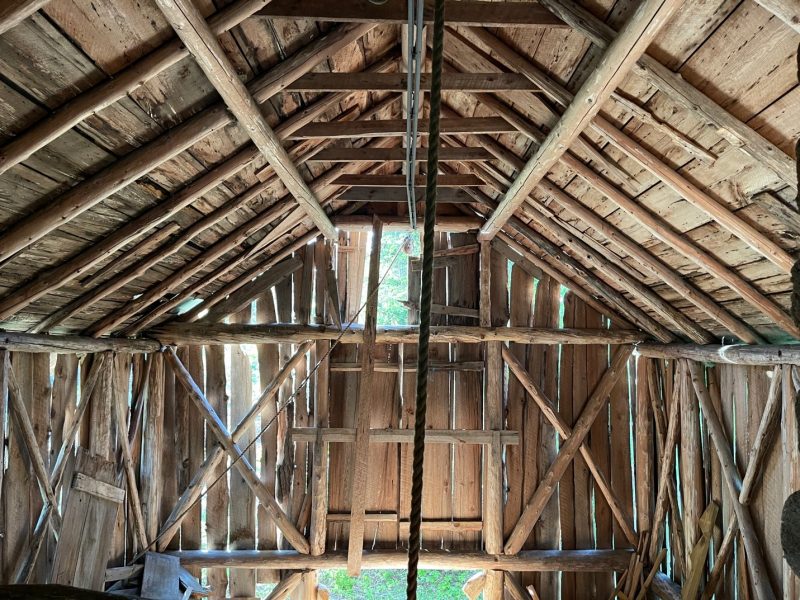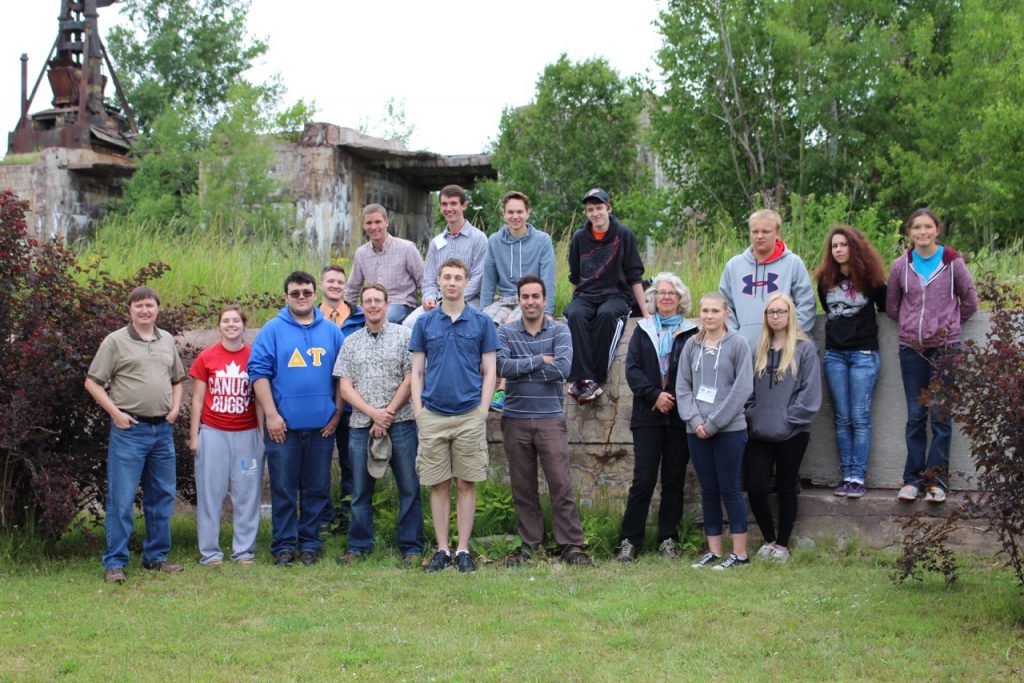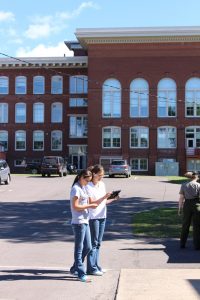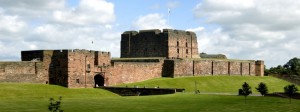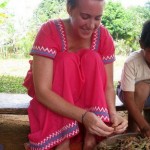Summer Field School includes 8 students from Michigan Tech and Northern Michigan; 3 Instructors; 3 generations of property owners; 6 visiting heritage professionals; 5 great days on the banks of Lake Superior; PLUS a dog and a resident turkey (!) all combined for an exciting place-based learning experience!
What does MTU History Associate Professor of History Sarah Fayen Scarlett get when she takes on leadership of the 2024 Vernacular Architecture Forum (VAF) annual conference planning committee? Well, perhaps a few headaches between now and 2024. But also, several unique opportunities to engage in local fieldwork documenting everyday buildings and their cultural meanings for people in the Keweenaw—past, and present. She’s sharing the opportunities this responsibility brings with Upper Peninsula students and professionals. Together they’re working on publishing a conference guidebook featuring local vernacular architecture and conference tour sites. Themes include exploring cultural identity, environmental change, industrial communities, and contemporary heritage practice. Scarlett’s “Barns and Beaches” field school gave upper peninsula college students a great applied learning experience.
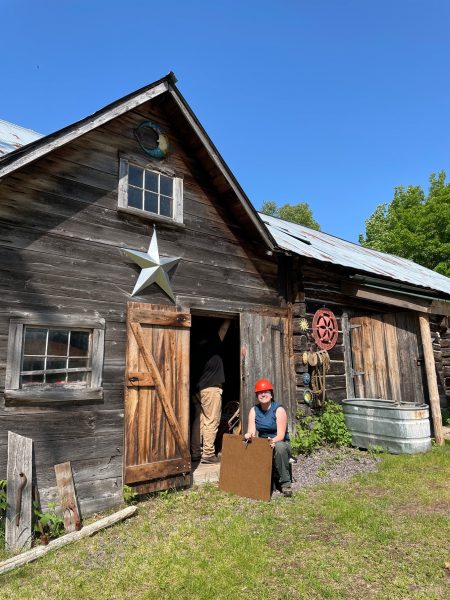
Barns and Beaches Field School Uses the Keweenaw Community As A Classroom
The Summer Field School attracted students in a variety of fields such as history, anthropology, folklore, and material culture studies. The June class included two Michigan Tech Social Sciences majors, an incoming Industrial Heritage & Archaeology grad student, four Northern Michigan University anthropology students, and an MTU graduate student as a teaching assistant. The four-week 3-credit course was team-taught by Scarlett, Keweenaw National Historical Park Historical Architect John Arnold (Industrial Heritage PhD 2017), and Finlandia University Finnish Studies Associate Professor and folklorist Hilary Virtanen. The instructors contributed their expertise in documenting everyday buildings and cultural landscapes. They mentored students in the collection of information from people associated with such places.
The group of eleven formed an instantly cohesive team. Their skills and interests were well-matched for the task at hand: to document and create materials describing a Finnish American homestead farm in the Misery Bay area of Toivola and an adjacent summer cottage built in the 1940s. Both properties had remained in the families that established them.
Students Develop Field Work Skills
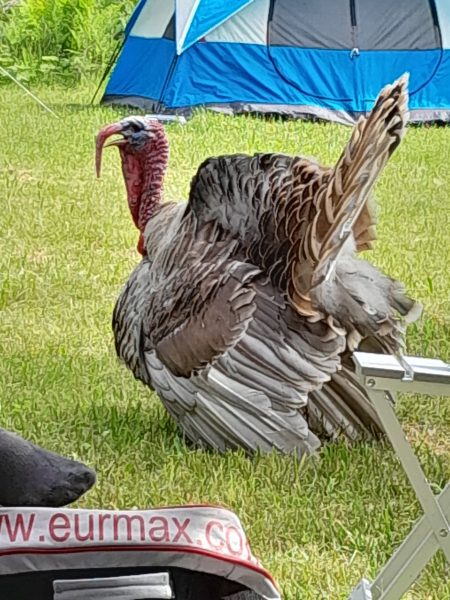
During the second week, the class met at the Kemppa farm in Misery Bay, Toivola. Students camped in the farm’s front pasture, thanks to the owner and steward of the property’s heritage Luann Hayrynen. This made it convenient for students to document the Kemppa family farm and the neighboring summer cottage, Dell Shack. This intensive fieldwork was augmented by a visit to the Hanka Homestead Farm, a Finnish American homestead farm museum in Baraga County affiliated with the Keweenaw National Historical Park (KNHP) as well as lecture and demonstration visits from area professionals including KNHP staff historian Jo Holt, landscape architect Steve DeLong, Park superintendent Wendy Davis, and MTU’s geospatial scientist Dan Trepal.
Students and instructors precisely measured, photographed, and created field drawings of buildings. They conducted oral history interviews of occupants and their family members to gain insights into the history of the sites’ developments over time and their cultural significance to the families and their neighbors. And they investigated materials offered for examination by the study participants, including family photographs and documents that helped solve building history mysteries. All of this activity generated a vast amount of data. Over the final two weeks, students converted raw data into computer-generated architectural floor plans of each selected building. They deepened their understanding of the properties’ histories with creative research with archival documents, deep geological and cultural historical data, and even aerial and satellite photographs of the Misery Bay area over time.
Read about Robert Hazen’s experience as an undergraduate student in the Summer Field School
Students Present Findings to the Local Community
Students acquired skills in historical architecture documentation and interpretation. They learned to conduct semi-structured oral history interviews. And they wrote interpretive content for use in the 2024 VAF guidebook. The first week centered on intensive readings, lectures, and in-class fieldwork skill-building activities in the Archaeology Lab. One highlight was a virtual visit from Professor Emerita Carol MacLennan on Indigenous land use in the Keweenaw.
During the final week of class, students prepared a group presentation of their findings for local community members at the Misery Bay School. The goals of this culminating event were to spread the word about the upcoming conference and our work at the Kemppa Farm and Dell Shack, but also to have another opportunity to learn more about these properties from people who have their own important perspectives: long-term neighbors. As a result, many stories and memories were shared over refreshments between students, property owners, and neighbors. These relationships will continue to develop as preparation for the VAF conference continues.
For more information about or to participate in the VAF conference in 2024 please contact Dr. Scarlett at sfscarle@mtu.edu.
